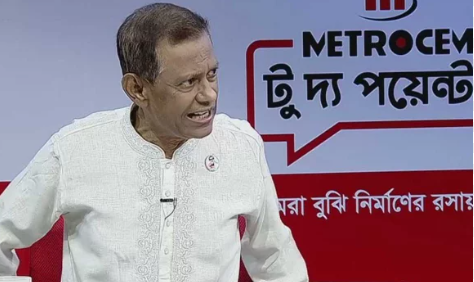Sooner or later during any political race, practically anyplace in the majority rule world, citizens can hope to be informed that their nation is at a junction.
In any case, seldom has the deep rooted discretionary platitude been more genuine than right now in Poland.
The European Association's fifth-most crowded country will cast a ballot in a critical political race on Sunday October 15, the consequences of which will resound westwards through the EU, eastwards into war-torn Ukraine, and across the Atlantic, where the White House will observe intently.
The following end of the week's vote could see the decision, libertarian Regulation and Equity party (known by its Clean abbreviation, PiS), secure an extraordinary third continuous term - which its faultfinders say could finish a biased update of the nation's organizations.
Yet, the political decision is hazardously close; a unified resistance alliance is in striking distance of taking power, while a vague outcome could open an entryway for the extreme right to profit by.
What's going on?
Poland is deciding on October 15 to choose its new parliament, and PiS - which at present oversees with the backing of some more modest egalitarian gatherings - is wanting to win a third sequential term and structure the country's next government. It is gone against by an alliance of moderate gatherings drove by Donald Tusk, Poland's previous head of the state and the ex-leader of the European Board.
With only days staying in the mission, various results stay conceivable.
Surveys put PiS in front of Tusk's Community Alliance, just barely, proposing it's impossible that any gathering will win a through and through greater part in the Sejm - Poland's lower house. That result would shoot the beginning weapon on a few days of post-vote talks, with the main party endeavoring to find an alliance that would permit it to oversee.
There has been hypothesis about whether the Confederation - a more modest, extreme right party - would enter such a settlement with PiS on the off chance that the political decision results make them kingmakers. Confederation pioneers have demanded they are not keen on doing any arrangements.
A severe mission
Individual quarrels and goes after have for some time been elements of Clean legislative issues. However, by any principles, the current year's mission has been horrendous.
PiS, which has been blamed for scapegoating travelers and LGBTQ individuals to stir up divisions in front of past decisions, has tirelessly looked to paint Tusk as a numbskull of Brussels and Berlin. A disputable test the public authority declared recently into "Russian impact" was condemned at home and abroad as an endeavor to focus on the resistance chief.
Public media, which is generally constrained by PiS, has reflected a significant number of those ideas. Tusk has endeavored to retaliate, portraying his run as a last opportunity to save Poland from the holds of defilement and dictatorship.
"The talk is very crazy - that this would mean certain death for Poland," Jacek Kucharczyk, the leader of the Chief Board at Warsaw's Foundation of Public Undertakings, told CNN.
"On the two sides, you have this conflict of good and wickedness, however the great and evil are portrayed in an unexpected way - on one hand you have a vote based system, and law and order, and Western qualities, and then again you have patriotism, Catholicism, and sway," Kucharczyk said.
Adamantly high expansion and typical cost for most everyday items battles have overwhelmed citizens' interests lately, and security issues have been likewise unmistakable during the mission. Reports last month that Clean authorities have been engaged with a supposed money for-visas embarrassment has harmed endeavors by PiS legislators to introduce themselves as hard on line security.
'An enormous change' of Poland
The biased turn Poland has taken during PiS's eight-year rule has caused the nation - when seen as the model post-Soviet vote based system - to lose companions in the West, raising pressures in front of the following week's vote.
Pundits of the public authority demand that a third term would permit it to finish a full crackdown on legal freedom, media opportunity, popularity based organizations and the privileges of ladies and minorities.
"(The political decision) is seen as the last opportunity to invert the course of popularity based losing the faith, through just means," Kucharczyk told CNN. " The worry here is that assuming PiS stays in power for an additional four years, they will close the holes in the tyrant framework that they've been working throughout the previous eight years."
The decision party's endeavors have incorporated a critical redesign of the legal executive, which has given the public authority expanded power in picking who fills key positions. In June, the EU's top court decided that Poland's legal changes were in break of the coalition's regulations and requested it to make changes or face steep fines.
"It has been a huge institutional change," Piotr Buras, top of the European Committee on Unfamiliar Relations (ECFR) in Warsaw, told CNN. " This is a seriously profound change towards a close-minded system under the front of majority rule methodology."
PiS has contended that its changes were expected to modernize Poland's establishments and freed the legal executive of Socialist period deputies. However, the party's faultfinders propose that it is endeavoring to follow the way of Hungary, whose developing tyranny has similarly drawn in the anger of Brussels.
"What we might observer after this political race is something genuinely uncommon throughout the entire existence of European majority rules government, which would be an endeavor to move back radicalism," Buras said.
Contending dreams for Europe
"There was this time that Poland was the best understudy in the class, regarding the EU," Kucharczyk expressed, alluding to the post-Soviet period where Warsaw immediately turned into a flourishing youthful, unregulated economy a majority rule government.
Be that as it may, things have changed in the previous 10 years. Poland has been buried in a long-running fight with the EU. Brussels has kept financing and sued Warsaw over its endeavors to debilitate law and order and legal freedom, while Poland's administration has shown a readiness to go after the foundation consequently - frequently while trumpeting Shine power as a more significant need than worldwide participation.
"(The decision party) are progressively unfriendly to the EU, and they have progressively terrible relations with practically their neighbors as a whole, particularly Germany," Dariusz Stola, a history specialist at the Establishment of Political Investigations of the Clean Foundation of Sciences, told CNN.
Regardless, Poland stays in a strong situation in Europe, and the current month's vote could decisively flip those elements. Enrollment of the EU - which Poland joined in 2004 - remains predominantly famous among Shafts, and in Tusk, the resistance has picked a transcending figure in ongoing European legislative issues to battle its mission.
Poland likewise acquired a groundswell of unforeseen generosity in Europe through its reaction to Russia's full-scale intrusion of Ukraine last year. Moscow's hostility apparently justified many years of Clean admonitions about Russia's thought processes and European dependence on Russian energy that, until February 2022, were generally dismissed in the West as out of date complaints of a former time.
The current month's political decision will go some way towards deciding if Warsaw looks to fix up its relationship with Brussels and seek after a main job in answering Russia, or whether a long-running question between the different sides develops.
"Poland is a key part in Europe; it borders Ukraine, it has a significant land armed force, significant military spending, and is the vital center point for supporting Ukraine," Stola said. " What occurs in Poland will be exceptionally significant for all of Europe before long."
Kyiv and Washington watch on
Poland's political decision will be watched to its west, yet to its east - as a more disagreeable tone creeps into Warsaw's once-relentless relationship with Kyiv.
"Support for Ukraine has been the wellspring of Poland's ethical prevalence in international strategy for the last 18 months," Buras said. " Presently there are intense breaks in this picture."
The Clean government has progressively designated Ukraine with hearty manner of speaking - especially over the imports of Ukrainian grain that it says would undermine Clean ranchers, yet in addition on the stock of Western weapons and Kyiv's endeavors to join NATO and the EU.
Verifiable complaints over a The Second Great War period slaughter by Ukrainian patriots have likewise been restored for this present year, building up strains that were covered soon after Russia's intrusion.
Driving that change has been the development of an extreme right party, the Confederation, which rallies against the monetary help given to Ukrainian displaced people in Poland. The gathering has acquired help this year in a large number of PiS's provincial fortifications, and government authorities have answered by hardening their tone towards Kyiv.
"One likely result is an alliance among PiS and Confederation, and that would be exceptionally terrible information for Clean Ukrainian relations," Kucharczyk said.
It is challenging to envision any situation in which Poland ends Western weapons crossing its domain for Ukraine, and Poland's longstanding resistance towards Russia will stay a characterizing mainstay of its perspective.
In any case, specialists express relations among Warsaw and Kyiv could harsh further in the event that Warsaw lines back on its monetary and military help after the survey.
"Poland has exceptionally profound interests in supporting Ukraine," Kucharczyk added. " However, the harm done during the political race would proceed and the outcome would be that Ukrainians would increasingly more focus on Berlin and Washington as their accomplices, as opposed to Warsaw."





0 Comments